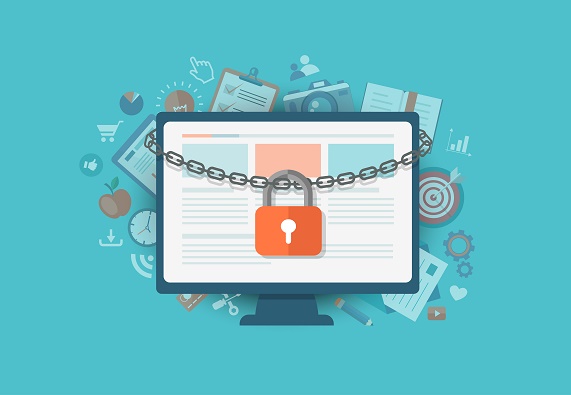Unless you are one of those rare technophobic writers staunchly refusing to give up their typewriter, you and technology are necessarily brought together by the very nature of your work. You write on a computer, save your work on a hard drive and market it online, with the world of social media offering exciting opportunities to promote yourself and your writing. Yet there are inherent dangers that come with the internet. Hackers and other cybercriminals can take advantage of users who are not sufficiently tech savvy. Here’s what you need to know.

Why You Need to Protect Yourself
Data Safety
Your ideas are your ideas. Writers hold their cards close to their chests, showing their work only when they deem it ready. If you are hacked, all of your research, outlines, character profiles, timelines, chapters, essays and articles could be posted online, emailed to competitors or even presented as someone else’s work. When you are the creator of unique ideas, it’s important to keep them safe.
Protecting Confidential Information / Legal Responsibility
Writers are often entrusted with personal information, contact details and sensitive data not to be released to the general public until a certain date, if at all. You have a duty to keep that information safe. Failing to do so can adversely affect people’s lives and greatly damage your reputation. If there is a breach of confidential information that is in your care, you could find yourself on the legal hook for the leak, even if it was not your fault. Protect yourself or risk going to court.
Identity Theft
Victims of identity theft often find the experience time-consuming and incredibly distressing. If you have your identity stolen or fall victim to a phishing scam, you have to take time away from your writing to resolve the issue. If your email address is suddenly spamming your clients with pornographic links, your credibility and professionalism will take a hit. You can try to control the damage, but the best way to protect yourself is through prevention.
How to Keep Yourself Secure
Use a Virtual Private Network (VPN)
Many writers prefer to write in a café or library than work from home. While this is completely understandable, and likely helpful for the craft of the writer, there is also an inherent security risk. Hackers sometimes lurk on unprotected public networks and intercept any information that travels over them, including confidential client information, account data and financial records. It is not difficult, and it is more common than you think.
If you need to access the internet away from home, use a Virtual Private Network (VPN). A VPN connects your computer to an offsite secure server that will mask its IP address, while the encrypted connection protects all data travelling over the network. This blocks out network hackers and keeps your browsing habits private.
Have a Backup
The absolute worst nightmare for any writer is to have all of their writing disappear thanks to a cyberattack or malfunctioning hard drive. The internet is littered with stories of careers that were ruined from a single tech failure. What makes it worse is that it is almost entirely preventable. There are numerous backup options available at little cost. Cloud storage is great for saving general documents and research. For sensitive data and everything else, you can’t beat a solid and reliable flash drive. If you update it every couple of days, you’ll be able to sleep a lot easier at night.
Be Careful on Social Media
Most writers have several social media accounts. If they are hacked, your reputation could be on the line, along with the followers and fans you’ve amassed. Be discerning about who you interact with and make sure that only you have access to your accounts. Avoid any “offers” that promise to increase your number of followers. Most of them are scams – your information may be taken and used illegally. Even if a service delivers, any discerning reader will be able to tell what you’ve done and won’t remain your reader for much longer. The honest path to a strong social media presence is tough, but ultimately safer and more rewarding.
Be Careful with Online Payments
Lots of writers today are paid through online services such as PayPal. It is an easy and effective way to handle payment; you just need to be careful. You should always use a service where some form of verification is required. You can’t be certain about new clients, and every freelance writer has a story where they weren’t paid by one. Make sure to keep good records and evidence of work done.
Common Sense and Good Habits
Here are a few final pointers to keep your computer secure and your data safe:
An internet security suite is an essential program to protect your computer from viruses, hacking and more.
Only use websites that are secure and trusted. Look for the padlock-shaped verification symbol in your browser’s address bar.
Use strong passwords of ten or more mixed characters.
Never trust anyone else with your computer. Even if they have the best intentions, they might not know what they are doing.
If you think something might be a scam, look it up. Unless you find evidence that it is legitimate, stay away.
When in doubt, don’t click on it!
Your writing and your work are far too important to leave open to attack. Follow these tips so that you can focus on making yourself a better writer and an attractive hire for potential clients.
I wish you good luck in your writing, and may you always stay safe when you use technology.

